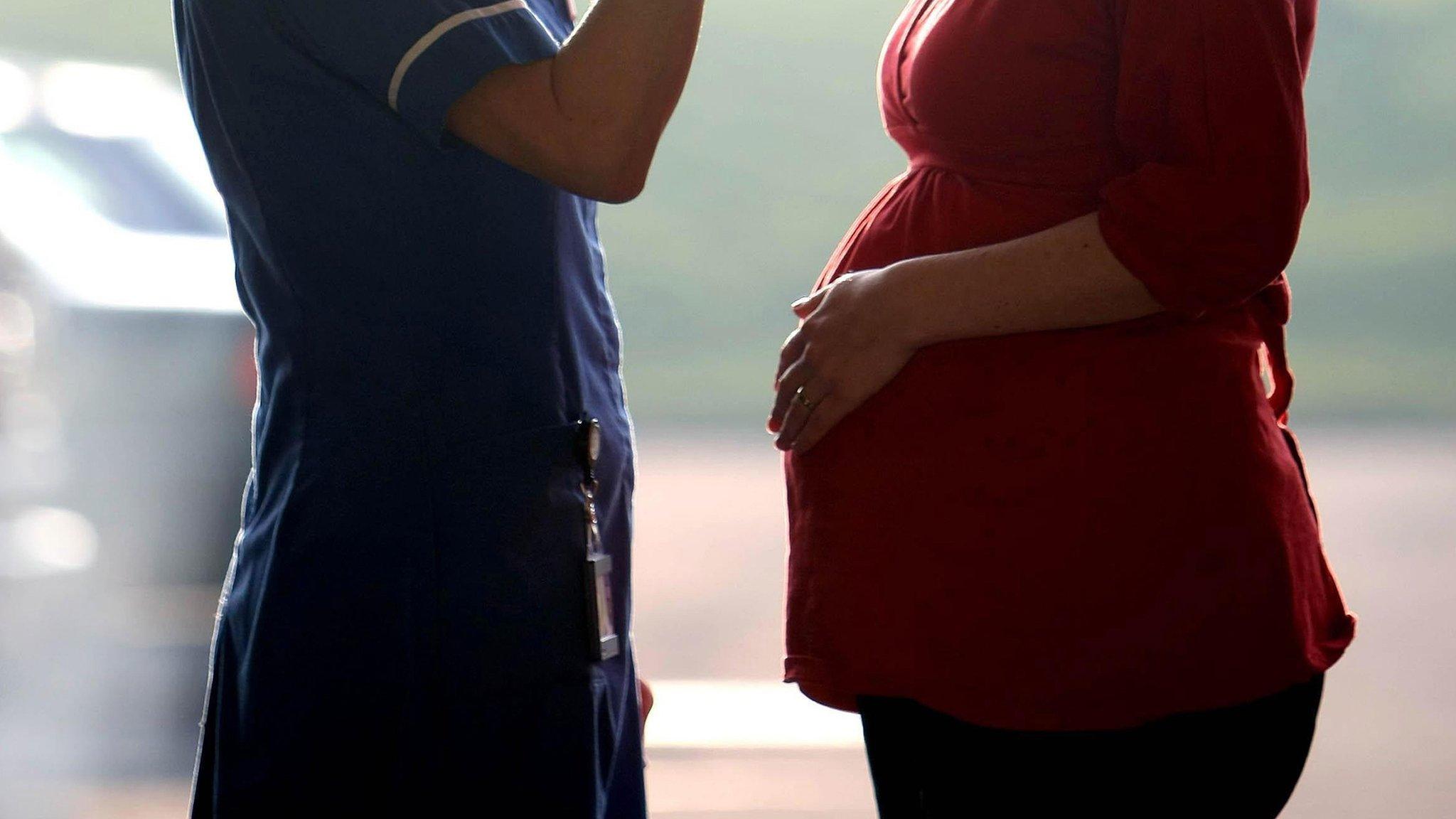Maternity services in Scotland 'beginning to buckle'
- Published
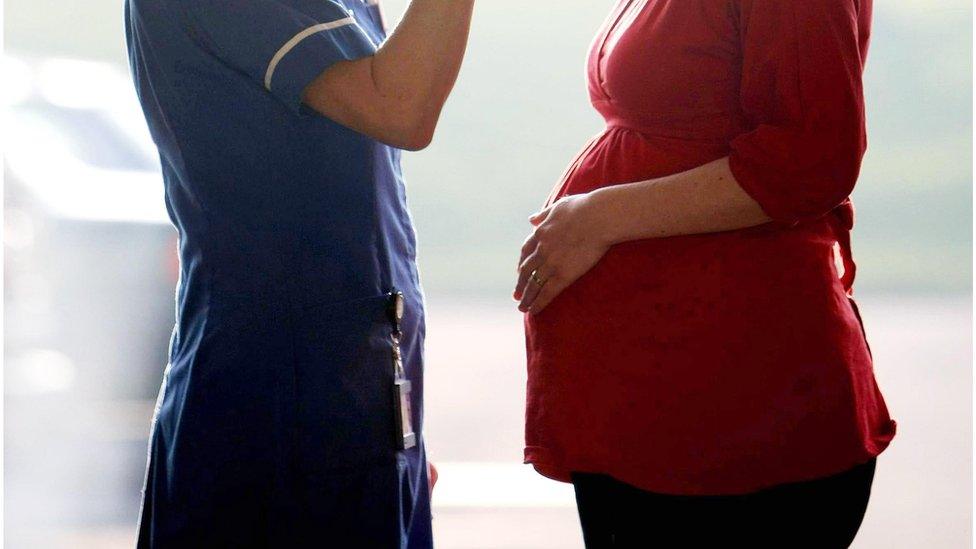
Maternity services in Scotland are "beginning to buckle", according to a new report by the Royal College of Midwives.
The report said more complex births, older mothers and an ageing workforce were adding to the pressures.
It also showed that more than a fifth of pregnant women in Scotland were obese.
The Scottish government said it had consistently increased midwife numbers over the past few years.
It also said it would work with the Royal College of Midwives (RCM) after a major review of maternity services.
The report on the state of maternity services in the UK found that while Scottish services were very good, there were signs they were "beginning to buckle as demand rises".
Despite a recent dip, birth rates remained high in Scotland, with the number of births in 2016 matching 2006 levels and up on the number at the start of the century.
The report also found that births were becoming increasingly complex, with a rise in obesity levels for expectant mothers.
In Scotland, more than a fifth of pregnant women are now obese, which can lead to complications and require additional care.
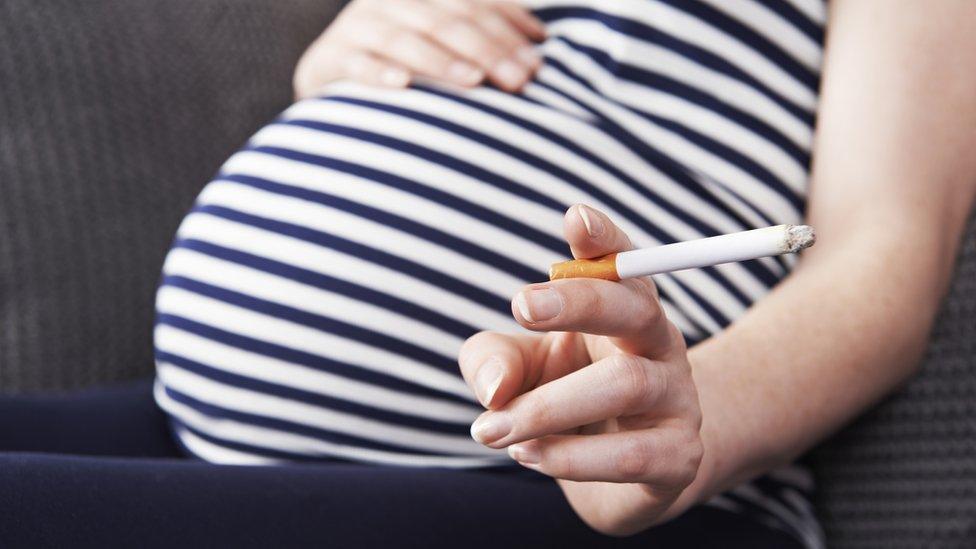
The RCM said smoking in pregnancy was a serious public health issue in Scotland
The RCM said the increasing number of older mothers was also a concern.
Births to women in their late 30s were up by more than 2,000 since the year 2000, while births to women aged 40 or older were up by about 1,000.
For women aged 45 or older, the number of births jumped from 29 to 143 between 2000 and 2015.
The report also found that Scotland's ageing midwifery workforce remained a pressing issue.
Midwives aged 50 or over now make up 41% of the total workforce - the highest proportion in the UK - while at the same time the number of younger midwives is falling.
RCM Scotland director Mary Ross-Davie told BBC Scotland's Good Morning Scotland programme: "Heads of midwifery in Scotland are telling me that in a normal month, they're getting double the amount of retirements that they used to get."
She said student midwifery places numbers were drastically cut in 2011 but had since increased steadily to the currently level of 191. But she warned that the three years it takes to train a midwife meant it would take time for this to make a difference.
"Sometimes were are not keeping pace with the number of retirements," she said.
"And we're finding that particularly acute in some of our remote and rural areas, up in the north, in Grampian and the Highlands where we're getting posts with very few applicants."
Ms Ross-Davie said it was important to retain experienced older midwives through measures such as flexible working, in order to deal with more complicated births.
"We have serious public health issues in Scotland with high levels of obesity and smoking in pregnancy among many other issues," she said.
"With older mothers it is the women, of course, who will decide when they get pregnant, and we support whatever choices they make. What is important is that we have the right numbers of staff and resources to give all of these women the best possible care."
She added: "Scotland's maternity services are very good but there are signs that it is beginning to buckle as demand rises."
'Challenges still remain'
Health Secretary Shona Robison said: "The college's report recognises that the government has consistently increased student midwife numbers over the last few years and acknowledges that Scotland has continued to maintain an appropriate-sized workforce when compared to other parts of the UK.
"However, we recognise that challenges still remain and will continue to work with the college to shape our student midwife numbers and the future direction of midwifery policy in Scotland.
She added: "Our innovative midwifery workload and workforce planning tools - a UK first - have helped to ensure that NHS Scotland continues to meet the RCM-recommended midwife-to-birth-ratio and we will continue to mandate the use of these across health boards."
The Scottish government is also planning to take forward a number of recommendations set out in a recent review aimed at improving Scotland's maternity services.
- Published13 January 2017

- Published11 January 2017
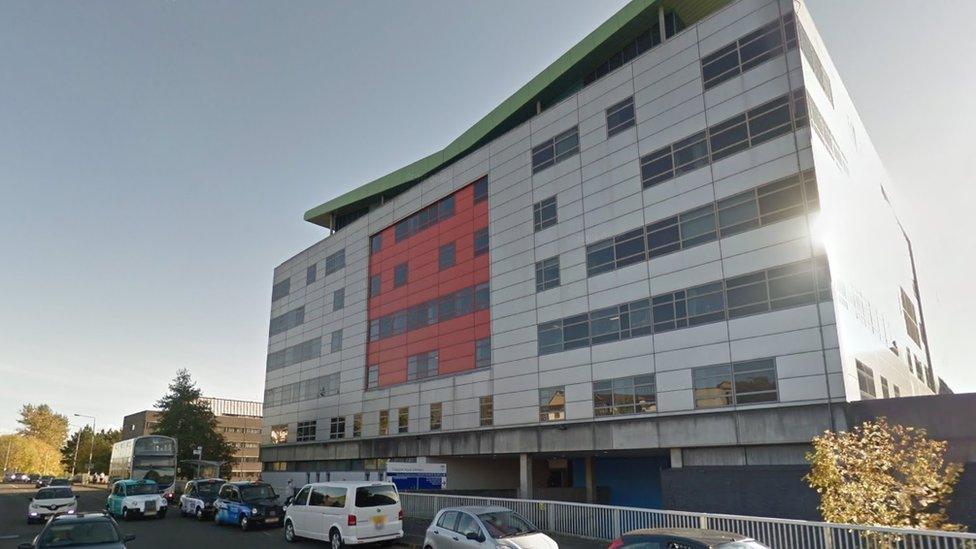
- Published27 November 2016
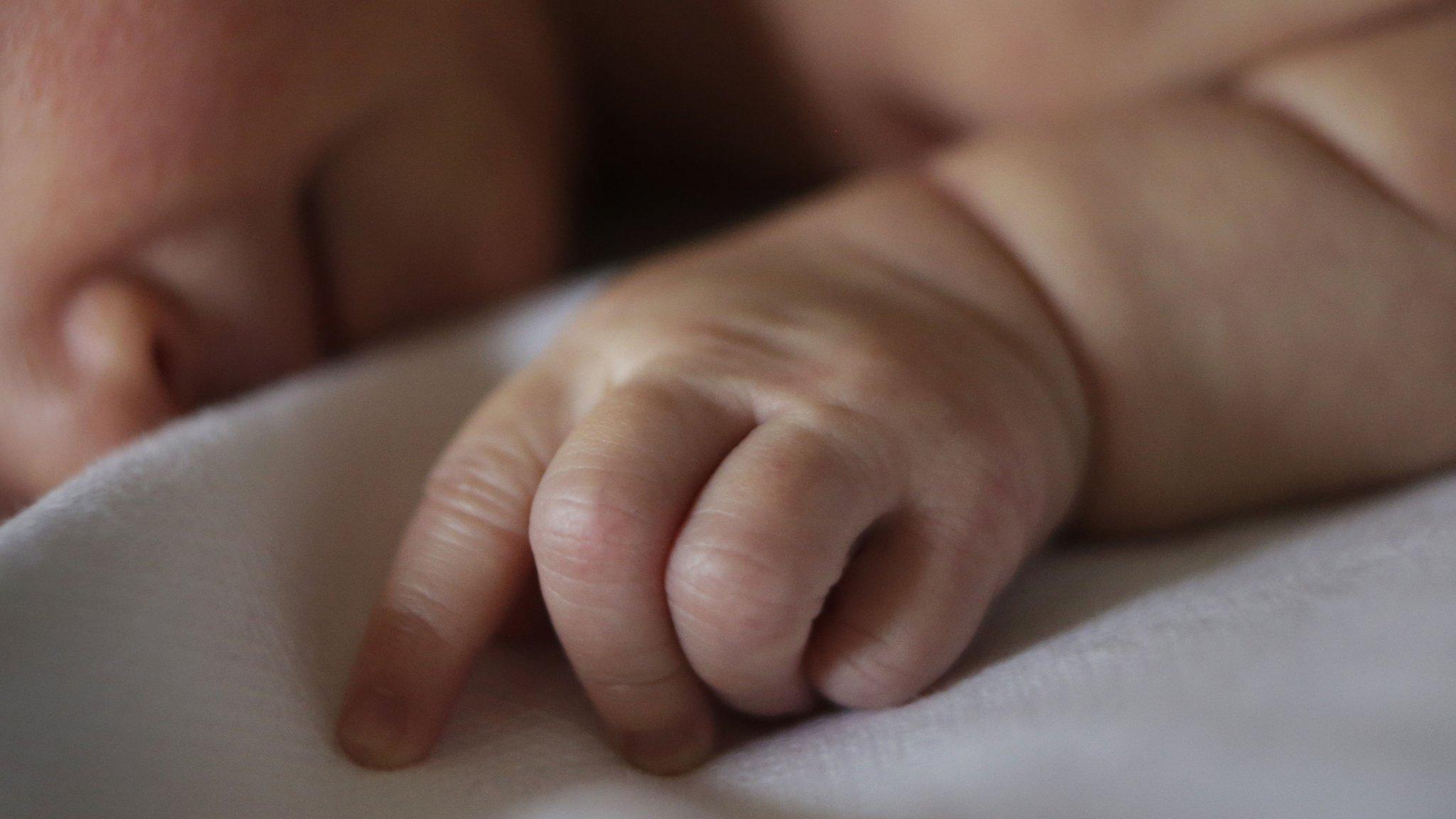
- Published22 November 2016
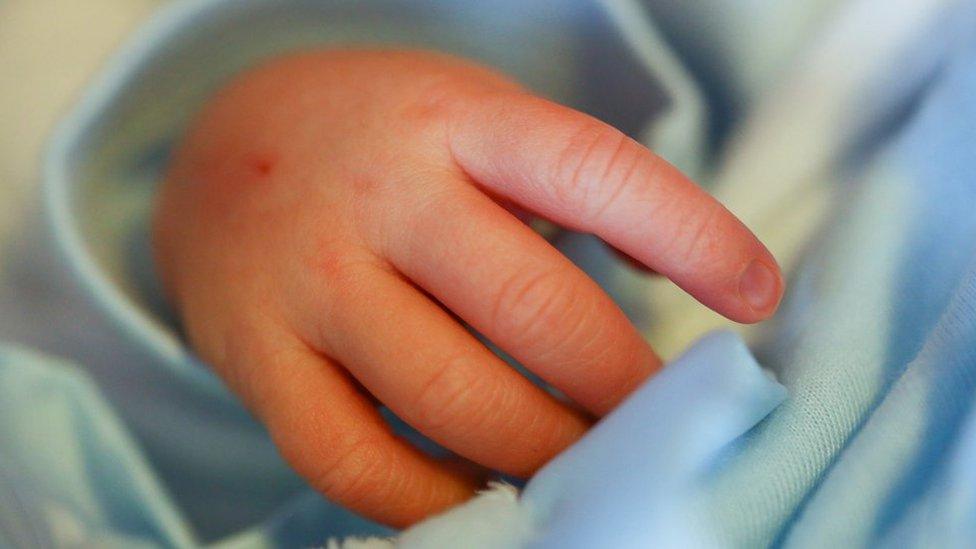
- Published21 November 2016
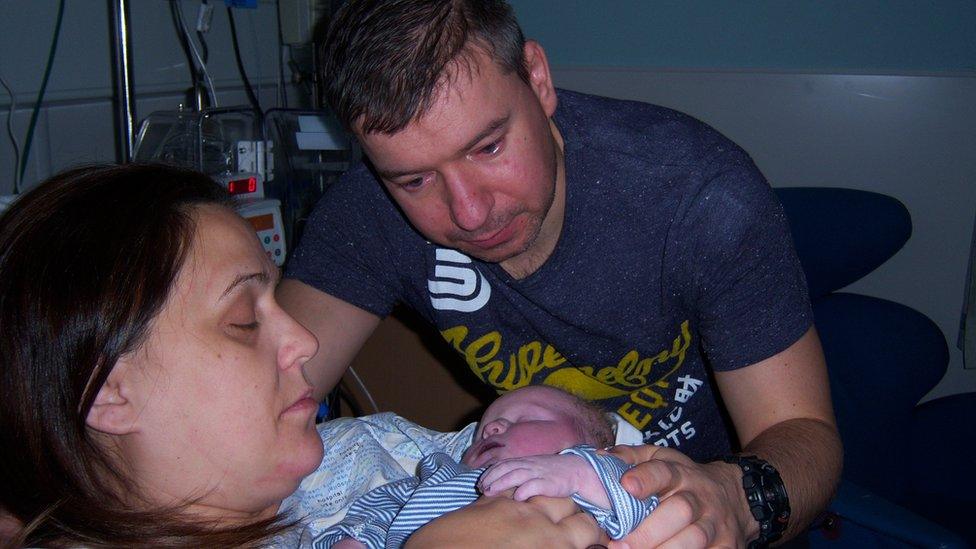
- Published27 October 2015
